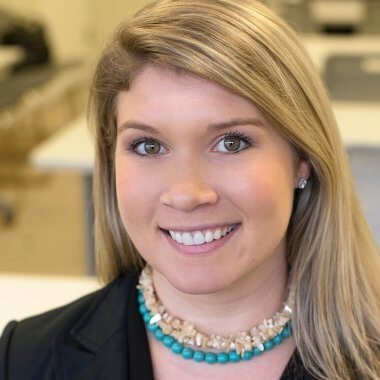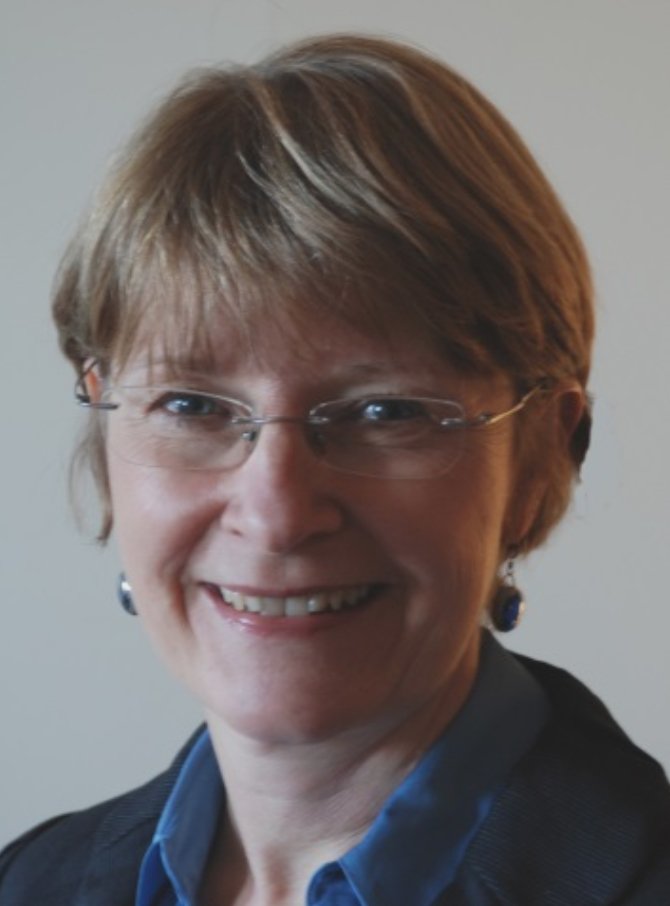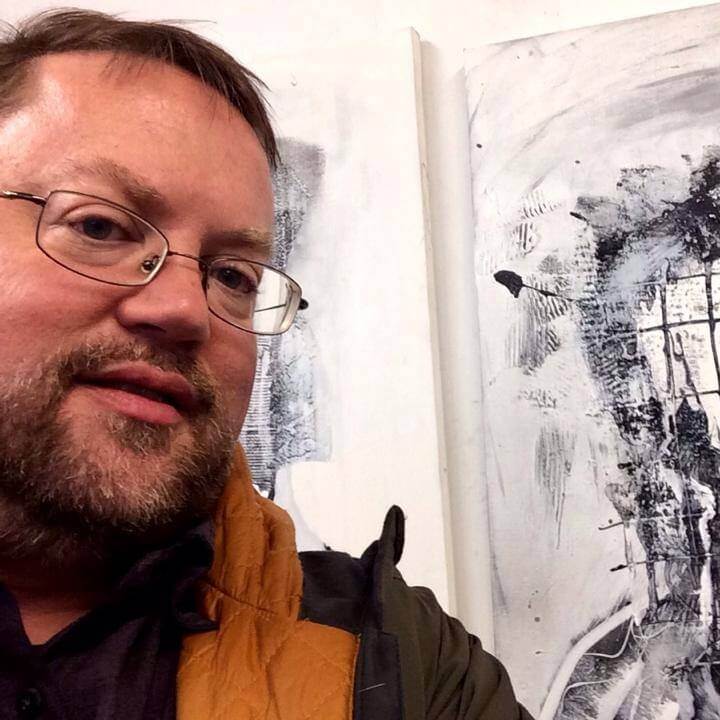NAPA Career Profiles: Jenny Masur

There are several reasons Masur ended up at NPS, but a major factor was her decision to look for work outside academia.
“The assumption was that I would get teaching experience and publish enough to get an academic job. Most of what happened was by chance — meeting the person who hired me at NPS, finding jobs within NPS, hearing about a Fulbright opportunity in Argentina. There is a seeming disconnect between my dissertation research and my current job, but all my past experience has proven useful.
My graduate work did not prepare me for anything but an academic job. I decided that I didn’t want to teach and began to look for alternatives. When I started work, it was most unusual to have ‘cultural anthropologist’ or ‘ethnographer’ as part of a government job title as I did. I fell into my career at NPS while looking for any applied anthropology job I could get. Once I started at NPS, it was clear that with no background on Native Americans, I would have to work with other groups that were traditionally associated with parks. As about 20% of the population, African Americans were an obvious choice. Gradually I got attached to a Special Resource Study on the feasibility of an NPS unit commemorating the Underground Railroad and, after working at the plantation site, I had a chance to work for the newly mandated program. Currently I ‘impersonate’ a historian applying the skills I used in archival research during fieldwork. I enjoy working for the Network to Freedom and have stuck with it because it deals with public outreach, documenting places important to cultural identity, and encouraging important research.”
When it came to the job search, networking through a professional anthropology association paid off.
“The Washington Association of Professional Anthropologists (WAPA) was key to my getting a government job. I joined WAPA and was helped by their jobseekers program. While attending WAPA meetings, I met Dr. Muriel Crespi, who founded the Ethnography Program at NPS, and found out that there was a job advertised for a PhD in Cultural Anthropology. After starting, I was trained by Dr. Crespi. I initially thought I would be working with Spanish-speaking groups, and that my background in Spain would be useful. Instead all the variety of jobs that I’d had proved useful, and my background in social history was valuable.
Dr. Crespi had just hired regional ethnographers and needed a staff ethnographer in her office. Naturally I helped out with tasks as assigned. Mainly I reviewed park projects and plans and helped with training for park staff and a variety of external cultural groups on what the new Ethnography Program was and could do, and on new ethnographic methods that could be used. By the time I had the opportunity to work with the Network to Freedom, I had experience as a Chief of Interpretation at a small park which, ironically, as a former plantation, drew more visitors interested in its architecture, decorative arts, and white owners, than in the mass of black workers who had been there from the 1790s until 1948. While there, in addition to other duties, I researched and improved public education on the history of African-American slavery at the park.”
Since Masur was hired as a cultural anthropologist, she illustrates how anthropology influences her work and the work of others at NPS.
“My first boss was an ardent applied anthropologist, and ferociously defended the role of and need for cultural anthropologists. NPS is very place-oriented, so anthropology serves as a counter-balance to remind colleagues that without people, places and resources are meaningless. For many years national parks attracted and aimed at a white middle class audience of both US and foreign visitors, so stories of interest to them were emphasized. As the American population changes, NPS is running to catch up. Various pieces of legislation made it incumbent on NPS to consult with groups traditionally associated with park resources (NEPA, NAGPRA, ARPA, Alaskan-statehood legislation on subsistence, etc.).
In my first job, part of what I did was to comment on park plans and remind park staff of living peoples I identified who were connected to national parks. Anthropologists facilitate dialogue with ethnic groups which have used park lands and resources for generations or are park neighbors. Part of my first job was to help organize training for rangers and particular cultural groups (e.g., American Indians, African Americans), introducing them to each other and NPS. The public face of NPS are the park rangers, who often have only a book-knowledge of the people associated with the park. When I worked in a park, part of my goal was to connect rangers, volunteer docents, and the public to the history of the enslaved African Americans who had lived and worked at the plantation but were ‘not visible’ in the plantation house and many of the outbuildings. We wanted to make the park ‘welcoming’ to African Americans who felt their story was not told.
Underground Railroad, the basis of the program I now work for, has been dismissed by many academics as secret and un-researchable. It has taken local historians unaffiliated with universities to document and lobby for recognition of this history, very important to local communities; to descendants of those involved in the Underground Railroad; and to others, especially African Americans, who identify with it. The legislation for the program I work for calls the Underground Railroad a precursor of the Civil Rights movement, and stresses the cooperation of different ethnic and religious groups. The program I work for places emphasis on individual agency of those who ran away, and on those assisting freedom seekers –who were not necessarily part of networks – and that is compatible with my anthropological background looking at individual actors. Likewise, working with a variety of local-level and grassroots organizations and researchers is compatible with anthropology’s bias toward collaboration and inclusion.
Networking is essential to what I do now, and anthropology made me cognizant of that skill. Part of my work is facilitating cooperation and sharing among a variety of entities – archives, parks, NGOs, grassroots organizations – which may not have worked together previously. In a sense, I broker and encourage by organizing meetings (Gatherings) on the Underground Railroad among groups that had not identified and promoted that history. I identify relevant resources in the community and in parks and bring attention to them. The program holds annual conferences and has brought descendants of a variety of cultural groups together – Gullah Geechee, Black Seminoles, Muscogos, and Bahamians and has widened the perspectives of local Underground Railroad activists to include a more global view of the Underground Railroad – more national, international, and inclusive of various ethnic and religious groups.
Not only is the program I work for interested in Underground Railroad cultural identity, it is helping create and shape it by publicizing it, connecting those interested in different parts of North America, offering technical advice, on occasion offering small grants, and setting credible standards for documentation. The program I work for has 500 members, which have had to provide documentation from primary sources of their relationship to resistance to slavery through flight. Since I often work with minority groups unfamiliar with NPS, I serve as a ‘translator’ and ‘educator’ for NPS. This was a valuable skill I learned when explaining American culture in the field and explaining people in the field to those back home (including an academic audience). Along those lines, while working for Dr. Crespi, we designed and implemented a course for rangers on multicultural interpretation – a word meaning presentation in an engaging manner. Not everyone who presents a specific culture is a member of that cultural group.”
Although Masur feels her education did not prepare her for finding a job outside the academy, the skills she learned were completely appropriate for her work at NPS.
“My fieldwork taught me core values and application of essential skills, and that everyone has something which you can learn. Not surprisingly, reading Max Weber on bureaucracy in grad school was a godsend for government work. In surprising ways, my Spanish, honed during fieldwork and my postdoc in Spain, has come in handy. Learning enough to ask the right questions and listening enough to shape questions right are skills I learned during fieldwork. I need to be able to ‘translate’ norms and issues between groups and know how to approach different groups and communicate with them. Right now research methods and standards have been important.
Other skills I have needed include cultural sensitivity, a holistic approach, the role of gatekeeper between groups, the skill of being a good listener, and the ability to recognize the internal world of a government agency vs. the public understanding of Federal government. I had to learn that NPS has its own traditions, folklore, and norms, and that the quintessential employee is a park ranger with a Smokey the Bear hat and the green and grey uniform. I arrived as women and minorities from outside the agency were brought into mid-level positions, which was not a seamless process. Bringing in academics to do research contracts or explaining NPS policies to the public requires an understanding of both perspectives and of the way bureaucracy – and in particular NPS – works. Although I am considered a ‘public historian,’ anthropological skills have been important. Listening to people unfamiliar with NPS and acknowledging their concerns has been essential. In designing training for NPS employees, I drew on ethical standards, recent methods, and interviewing (in the guise of oral histories). I have used qualitative skills. We are required to take ‘cultural diversity’ courses to eliminate prejudice, although these courses could use a good dose of cultural anthropology.”
Upon reflection, Masur expands on the disconnect between academia and applied work, noting the importance of professional organizations that provide networking opportunities.
”I did not pick a graduate school that was a good fit for me or that specialized in what I ended up doing – I was lucky that a professor’s wife specialized in Spain and taught at a nearby university. I wish I’d had preparation for the shrinking academic job market while at graduate school, and honed skills that were not just publishing, teaching, and lecturing. It was unfortunate that I was not aware of WAPA – my home base was DC – until I met a member on a train, or of a comparable organization in the city where I went to graduate school. I had no clue about the growing field of Applied Anthropology, and only a glimmer of how my research could have been parlayed into an applied career in demography. Instead, I kept trying for policy jobs related to migration. My job search in Washington was frustrating, and I wish I’d had more practical advice.”
For those interested in the NPS who are looking for advice and guidance, Masur offers the following suggestions:
“One entry to NPS work is to volunteer so that managers and possible colleagues come to value your skills. Find a park or office hiring seasonal rangers or taking interns or hiring students on the Pathways Program. Visit national parks near you, and observe who visits and the interaction of the public with the employees (not just the rangers). Research the kinds of parks and their issues and problems. Emphasize your skills at documenting, preserving, and researching material cultural resources within parks, as well as associated ethnic groups.
Keep an open mind, and a holistic view and look for opportunities to apply your professional skills. Learn to sell yourself as an anthropologist and a person. Network and get to know as many applied anthropologists as possible. Learn from their experiences. Whenever possible, find a ‘patron’ or ‘mentor’ and follow his/her advice. Keep your language skills up since you never know when you might need them. Do not be constrained by disciplinary boundaries – some of my most effective colleagues have not been anthropologists but have had similar or compatible skills. Listening, writing, interviewing, and editing skills are valuable whatever you end up doing. The respect for others, regardless of their culture or socioeconomic status, is essential. Always be willing to listen and learn from them. Share your knowledge; don’t act proprietary, since you never know who will be willing to share back. Always think in terms of providing solutions, not problems, for supervisors. Develop public speaking skills. Learn to talk government-speak and all the acronyms.”
These brief interviews of some key anthropological practitioners appeared on the NAPA LinkedIn pages (2013); subsequent interviews were posted on the NAPA blog (2014). They are listed here by the most recent interviews. The interview series was produced by NAPA Communications Committee members Kristin Keller and Nicole Conand.




